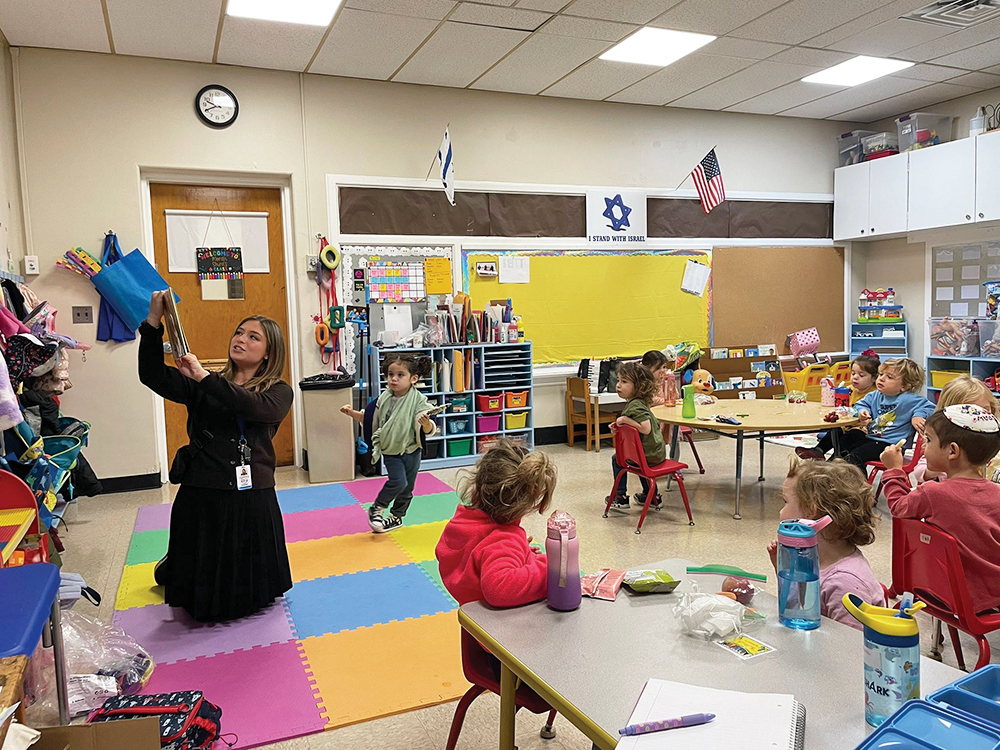Hagalah or Libun?
What if someone fried meat in a milk frying pan (or vice versa)? Is kashering with fire (libun) required, or does kashering with boiling water (hagalah) suffice? Normally, when cooking directly on the fire, libun is needed and when using a liquid medium, hagalah is enough.
However, a frying pan is challenging to assess (see Chelkat Binyamin 121:30 for an overview). Sometimes, it is clearly used with a liquid medium (such as when deep-fried). Sometimes, it is undoubtedly viewed as directly on the fire, such as when using a non-stick pan or using an insignificant amount of oil or such as when using cooking spray (Mishna Berura 451:65). Hagalah is sufficient when deep frying, but libun must be done when a non-stick pan or cooking spray is used.
A middle case is when some oil is used, but there is concern that the oil burns out, and some cooking occurs without a liquid medium. The Rishonim disagree regarding this case—the Raayva (2:464) quotes his father, Rabbeinu Yoel, who is strict, but the Raavya disagrees and suffices with hagalah.
Shulchan Aruch: Pesach
The Shulchan Aruch (Yoreh Deah 121:4 and Orach Chayim 451:11) resolves this dispute with a surprising decision. He rules that when kashering from chametz to Pesach hagalah suffices but requires libun from non-kosher to kosher. This ruling is unexpected since we are typically stricter regarding Pesach, than year-round kashrut matters.
We introduce the idea of “heteira bala” to understand this unexpected Pesach leniency. While hagalah does not normally suffice for kashering items that cook food without a liquid medium, the Gemara (Avodah Zara 76a) permits kashering such items through mere hagalah if they absorbed only kosher food (heteira bala), even though the food subsequently became non-kosher (see Rashi, Avodah Zara 76a s.v. L’olam).
For example, when the meat of a korban (sacrificial offering) is cooked in a dish, the flavor (ta’am) remains in the dish past the time the korban may be eaten. When this time expires, the meat becomes forbidden (notar; see Vayikra 19:5-8), so the dish now contains a taam (taste) that was absorbed from kosher food but is no longer kosher.
Many Rishonim equate chametz with food that was absorbed while it was still kosher and only later became non-kosher (since chametz was permitted at the time it was absorbed into the oven, before Pesach). Consequently, according to these opinions, hagalah would suffice to kasher utensils even if they absorbed chametz through fire (see Mishna Berura 451:28 for an overview of this debate and its resolution in practice).
Returning to the Shulchan Aruch’s surprising ruling, the Biur HaGra (Yoreh Deah 121:9) explains that Rav Karo combines the opinions that believe that hagalah suffices for frying pans and the views that we classify chametz as “heteira bala.” Rav Ovadia Yosef (Teshuvot Yechave Daat 1:7) writes that Sephardic Jews follow the Shulchan Aruch’s ruling.
The Rama: Pesach
The Rama (Orach Chayim 451:11) notes that some require libun for a frying pan. He even records the custom of kasher frying pans through libun. However, he writes that for this purpose, libun kal suffices. Let us first introduce libun kal: The Rama (Orach Chayim 451:4) cites some Rishonim who believe that libun is accomplished when the oven reaches the temperature at which straw burns (kash nisraf). Rav Hershel Schachter considers the temperature for libun kal to be 550 degrees Fahrenheit. Hence, this lighter form of libun (libun kal) can be accomplished even in most conventional ovens. Although the Rama requires libun until sparks fly (libun gamur) for utensils that truly need libun, he permits the more lenient libun kal for items that only require hagalah or where libun is only a preferred chumra.
The Biur Halacha (451:11 s.v. muteret) explains that most Rishonim believe hagalah suffices for frying pans. Since the opinion requiring libun for frying pans is a minority view, libun kal satisfies the minority view.
The Biur Halacha concludes that bedieved, hagalah suffices for frying pans. Rav Moshe Feinstein (Teshuvot Igrot Moshe, Yoreh Deah 3:14:2-3) writes that there is even more reason to be lenient bedieved now that we only kasher utensils when they are eino ben yomo, even for prohibitions other than chametz. OU Kosher writes, “libun kal can be accomplished by placing the pan in a regular oven at 550º F for an hour.”
Meat Cooked in a Dairy Frying Pan
The Mishna Berura (509:24) codifies Rabbi Akiva Eiger (Yoreh Deah 121:4) that meat or milk cooked in a pot is viewed as heteira bala and may be kashered using hagalah or libun kal (but see the Aruch Hashulchan, Yoreh Deah 121:11 who disagrees). Teshuvot Chatam Sofer (Yoreh Deah 110; cited by the Pitchei Teshuva, Yoreh Deah 121:7) writes that this applies even to when cooking meat in a dairy frying pan (or vice versa) if the frying pan is eino ben yomo. The Shulchan Aruch HaRav (Orach Chayim 451:13 in the Hagha) seems even to view meat absorbed in a ben yomo milk utensil as heteira bala, but this is an outlier view. If one is unsure if the utensil is ben yomo or eino ben yomo, we may assume it is eino ben yomo (Shulchan Aruch, Yoreh Deah 122:4 and 7).
Conclusion: OU Kosher Frying Pan Rulings
OU Kosher distinguishes between a ben yomo and an eino ben yomo frying pan. If it is a ben yomo frying pan used with little or no oil, libun is required. Libun may be accomplished by running the frying pan through a self-cleaning oven cycle. If the pan cannot survive such kashering, it must be discarded.
If a medium amount of oil was used, then libun is preferred. If the pan does not tolerate libun, we may follow Rav Feinstein’s ruling to wait 24 hours since the mishap and kasher with hagala (https://oukosher.org/halacha-yomis/cheese-blintzes-were-fried-in-oil-in-a-frying-pan-that-was-used-for-meat-in-the-last-24-hours-how-do-i-kasher-the-pan/).
If the pan was eino ben yomo, follow the Chatam Sofer and either kasher with hagala (preferably three times as a stringency). Alternatively, libun kal may be done to kasher the frying pan. These options apply, even if no or little oil was placed in the pan (https://oukosher.org/halacha-yomis/i-accidentally-cooked-chicken-in-my-milchig-frying-pan-the-frying-pan-had-not-been-used-for-dairy-for-more-than-24-hours-how-do-i-kasher-the-pan/).
Postscript: Seasoned Skillets
OU Kosher rules that preseasoned cast iron skillets should be run through a self-cleaning oven cycle to kasher them from very possible use with non-kosher food (https://oukosher.org/halacha-yomis/i-bought-a-brand-new-pre-seasoned-cast-iron-skillet-must-this-pan-be-kashered-before-it-may-be-used/).
Rabbi Jachter serves as the rav of Congregation Shaarei Orah, rebbe at Torah Academy of Bergen County, and a get administrator with the Beth Din of Elizabeth. Rabbi Jachter’s 18 books may be purchased at Amazon and Judaica House.












